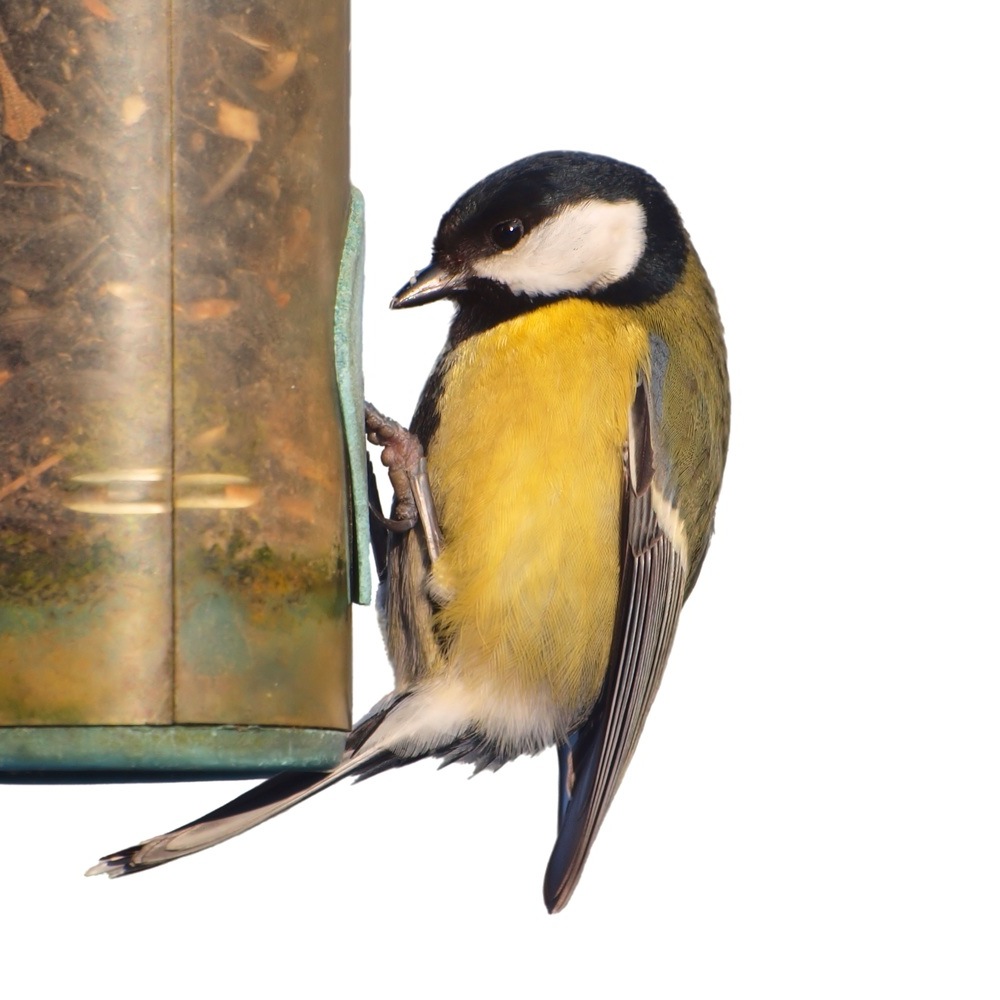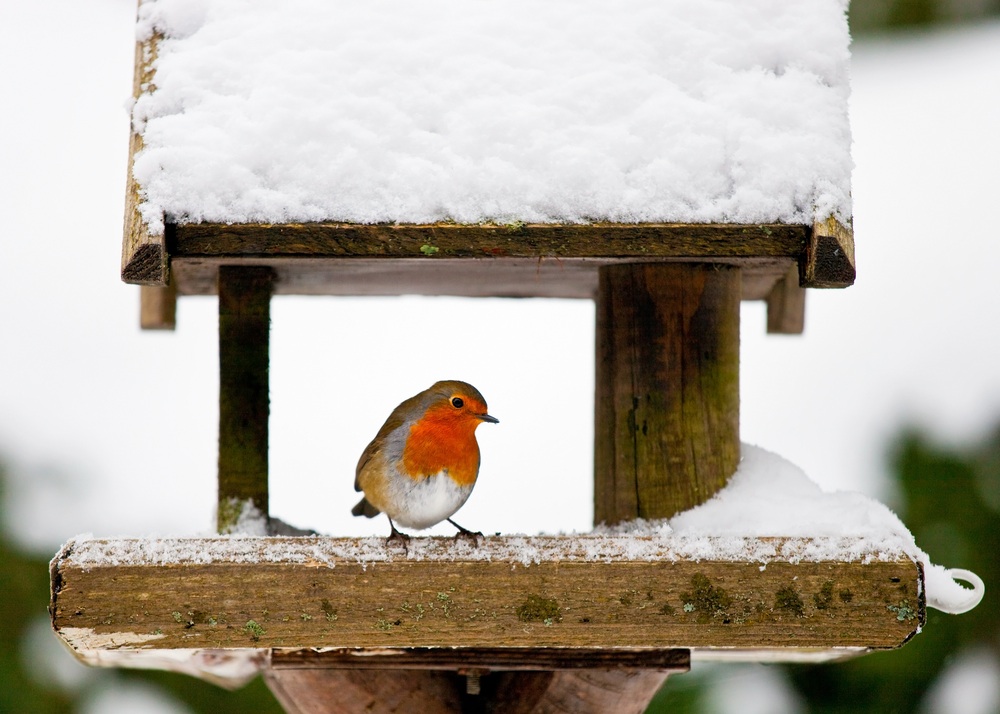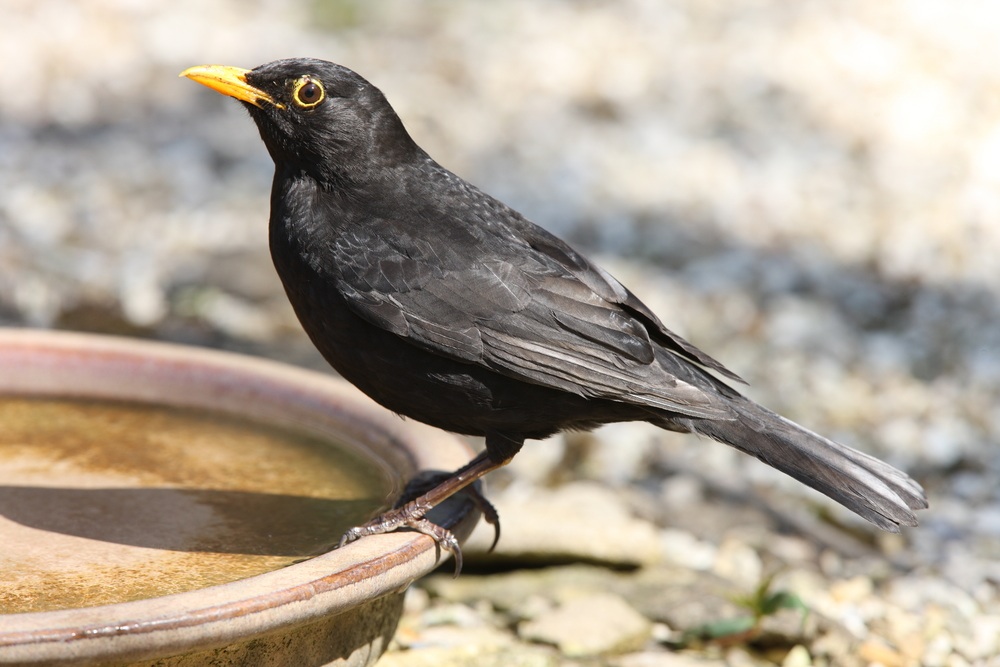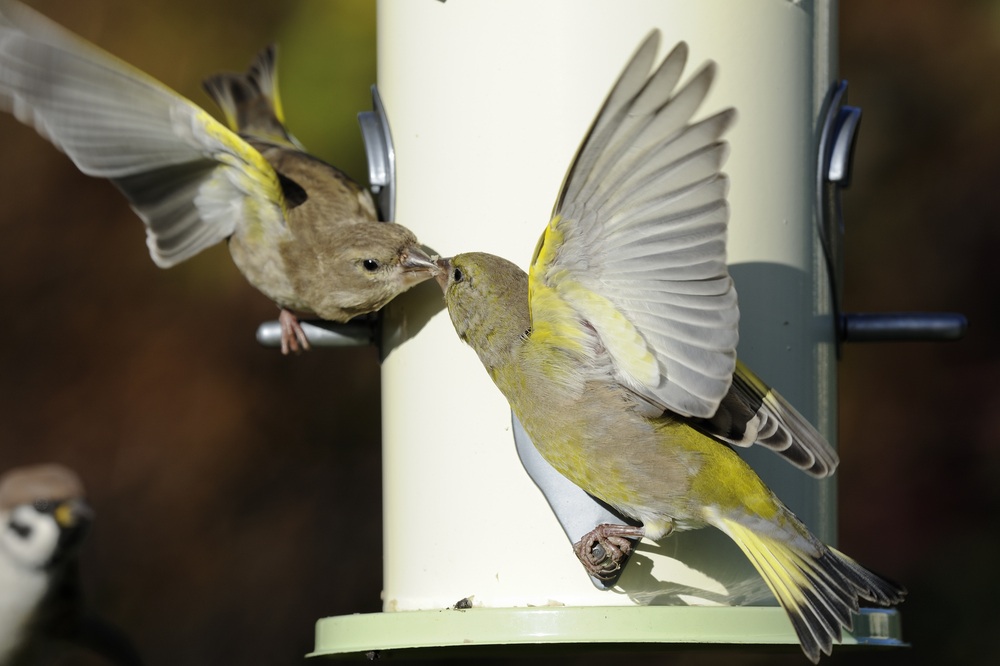Bird feeder hygiene

Feeding wild birds should help to ensure their survival, particularly over the winter period when natural foods are in short supply. Unfortunately however, it is equally possible to harm birds visiting bird tables, feeders and drinkers inadvertently, by poor hygiene.
The risk is greatest at this time of year as well, when more birds are drawn to feeders, and the relatively harsh weather conditions leaves them more vulnerable to illnesses. Attracting so many birds to one site then means that a single sick individual can then represent a serious threat to others seeking food here.
What to do

It is really important to minimise the danger therefore, by keeping the bird table clean. Firstly, do not overload the bird table with food. Aim to provide just enough for the birds to eat through the day. Tipping too much food on to the table will increase the likelihood that it could turn mouldy over the course of several days, presenting a direct threat to the birds' well-being.
Alternatively, the food could become contaminated by the droppings of a sick bird, spreading the illness to others as a result. You may not even realise the danger however, because sick birds are rarely seen, usually dying rapidly within a day or two.
Try to establish a routine therefore, to safeguard the welfare of the wild birds in your area, because otherwise, you could literally be killing them with kindness. Clean off uneaten food, and regularly disinfect the bird table using a product specially formulated for this purpose. Suitable disinfectants can be purchased at outlets selling wild bird foods, and from mail-order suppliers as well.
The best products of this type will not only kill bacteria, but are also deadly to viruses, yeasts and fungi, as well as being fully biodegradable. Always read the instructions carefully though, both to ensure the product proves effective, and also does not harm the birds.
Drinkers

The provision of fresh drinking water can be just as vital as food to birds for their survival, especially on cold days when other sources of water are frozen. Always provide an open pot of water where the birds can drink easily. You could even buy a special bird bath for the garden as well, but again, cleanliness is vital. The contents should be changed every day.
You can wash a bird bath out quite easily with a garden hose, and refill a water pot from a watering can, but these containers will also need to be disinfected regularly. It may be better to place the water pot on the ground rather than on the bird table, simply because it is then less likely to be contaminated by food or droppings.
General cleanliness

WheGreenfinches on backyard bird feedern cleaning the bird table or drinkers though, always wear rubber gloves as a precautionary measure, to guard yourself against any risk of acquiring an infection. Also, wash them off outdoors, and never in the household sink, keeping a bucket and scrubbing brush for this purpose. Although the risk is slight, there is otherwise a possibility that you could pick up an illness as a result.
It is also important not to leave spilt seed or food of any type on the ground, where it could easily rodents, which can bring health problems with them, threatening both your health and that of the birds, especially as they can be a source of Salmonella bacteria. Studies have shown that outbreaks of salmonellosis tend to peak in wild birds between December and April. This is thought to be the result of infective birds contaminating food on bird tables and feeders with their droppings, but equally, it can be linked to contact with rodents.
Greenfinches seem particularly vulnerable to this infection, along with other seed-eating birds such as house sparrows and bullfinches. Unfortunately, just as in aviary birds, the symptoms displayed by infected individuals could apply to a wide variety of illnesses and are not diagnostic. Their plumage appears fluffed-up and they appear weak, but clearly, if you do spot a sick bird at the bird table, it is a good idea to disinfect the area as a precautionary measure.
By taking these simple steps, so you can not only ensure that the wild birds visiting your garden benefit from the provision of a constant sources of both food and water, but they will also hopefully remain in the best of health through the harsh winter months.